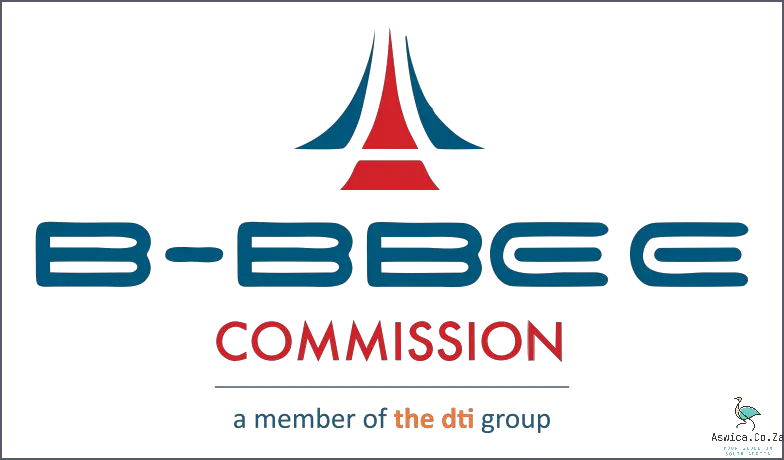
What Is Bbbee South Africa?
The Broad-Based Black Economic Empowerment (BBBEE) is a South African government policy that aims to redress the imbalances of the country’s past by giving black people greater economic opportunities. The policy has been controversial, with some feeling that it has not been effective in improving black economic empowerment, while others argue that it has been beneficial.
Contents
What Is Bbbee South Africa
BBBEE South Africa is an acronym for Broad-Based Black Economic Empowerment, which is a set of guidelines for companies and organizations in South Africa to promote economic transformation and inclusivity. It is a system that focuses on ownership, management, employment, procurement, and socio-economic development, with the aim of creating a more equal and prosperous economy, and to overcome the legacy of apartheid. BBBEE South Africa has been implemented to ensure that businesses, both big and small, take responsibility for the country’s economic growth and development in a way that benefits all South Africans. Companies are expected to demonstrate a commitment to creating a racially diverse and inclusive workplace, promote the development of local suppliers, and work to increase the number of small businesses owned and operated by people from previously disadvantaged backgrounds. BBBEE South Africa is a powerful tool for promoting economic transformation and socio-economic development in South Africa.
Definition of B-BBEE and its Components
South Africa’s Broad-Based Black Economic Empowerment (BBBEE) program is an important part of the country’s economic landscape. BBBEE is a government-initiated policy to drive economic transformation, and is particularly focused on increasing the economic participation of black South Africans in the country’s economy. BBBEE is designed to promote equality and create a more equitable society by narrowing the gap between the rich and the poor, and promoting economic development across all sectors of the economy.
At its core, BBBEE is a set of criteria that companies must meet in order to be recognized as a BBBEE-compliant enterprise. Companies must meet certain criteria in all seven components of the BBBEE scorecard to be eligible for preferential procurement and other government incentives.
The seven components of the BBBEE scorecard are Ownership, Management Control, Skills Development, Enterprise & Supplier Development, Socio-Economic Development, Preferential Procurement and Employment Equity.
Under Ownership, the BBBEE scorecard seeks to increase the level of black ownership of businesses. Companies are encouraged to increase their percentage of black ownership by investing in black-owned businesses or offering black South Africans the opportunity to invest in their own businesses.
The Management Control component of the scorecard encourages companies to appoint black South Africans to senior management positions. This helps to create an environment where black South Africans are represented in decision-making roles, and can contribute to the economic development of the country.
The Skills Development component of the scorecard seeks to promote skills development in black South Africans. Companies are encouraged to invest in training and development programs for black employees, as well as to provide financial assistance for black employees to pursue higher education.
The Enterprise & Supplier Development component of the scorecard encourages companies to invest in small, medium and micro enterprises (SMMEs) owned by black South Africans. This helps to create an environment where black entrepreneurs can flourish and contribute to the economic development of the country.
The Socio-Economic Development component of the scorecard encourages companies to invest in projects that benefit the community. This includes investing in infrastructure projects, health care facilities, education initiatives and job creation projects.
The Preferential Procurement component of the scorecard encourages companies to prioritize procurement from black-owned businesses. This helps to ensure that black businesses have access to the same opportunities as other businesses, and that black South Africans can benefit from the economic development of the country.
The Employment Equity component of the scorecard encourages companies to ensure that black South Africans are well represented in the workforce. Companies are encouraged to create an environment where black South Africans are given equal opportunities in the workplace, and are provided with the same access to training and development opportunities as other employees.

In order to be BBBEE-compliant, companies must meet or exceed the criteria set out in the BBBEE scorecard. Companies that meet the criteria are eligible for preferential procurement, and can benefit from a range of government incentives. BBBEE is an important part of South Africa’s economic landscape, and is helping to create a more equitable society by creating opportunities for black South Africans to contribute to the country’s economic development.
What are the Benefits of B-BBEE?
The concept of Broad-Based Black Economic Empowerment (BBBEE) has been around for over two decades in South Africa and is a key element of the country’s economic development. BBBEE is a system of policies, regulations, and guidelines that are designed to promote economic opportunities for black South Africans. It is based on the premise that economic transformation is essential for the country to achieve long-term economic growth and development.
BBBEE seeks to bridge the gap between black and white South Africans by providing a system of support that promotes entrepreneurship, job creation, and ownership opportunities. BBBEE also encourages businesses to invest in skills development, research and development, and enterprise development, helping to create a more equitable economic environment.
The South African government has implemented several BBBEE initiatives over the years, including the National Empowerment Fund, the Black Economic Empowerment Commission, and the Broad-Based Black Economic Empowerment Act. These initiatives have been instrumental in helping to create more equitable access to employment, education, and other economic opportunities.
The benefits of BBBEE are numerous. It helps to promote economic growth and development, creates job opportunities for black South Africans, encourages investment in skills development, and supports enterprise development. Additionally, BBBEE helps to reduce the disparities between black and white South Africans, creating a more equitable economic environment.
Overall, BBBEE is a crucial part of the South African economy and has been instrumental in helping to create a more equitable economic landscape. The benefits of BBBEE are vast and include increased economic growth and development, job opportunities, and a more equitable economic environment. As South Africa continues to strive for economic development, BBBEE will remain an integral part of its economic transformation.
The Impact of B-BBEE on the South African Economy
When it comes to the South African economy, the impact of BBBEE (Broad-Based Black Economic Empowerment) is difficult to ignore. BBBEE is a set of policies, regulations, and initiatives designed to reduce the disparity between South Africa’s black and white populations. It is an important part of South Africa’s continuing efforts to address the legacy of apartheid and create a more equitable society.
BBBEE is mainly focused on helping historically disadvantaged individuals (HDIs) and small, medium, and micro enterprises (SMMEs). It encourages companies to practice affirmative action, providing HDIs and SMMEs with an opportunity to access employment, education, and training opportunities that would otherwise be unavailable to them. This, in turn, has a positive effect on the South African economy as a whole.
For example, increased access to education means that more HDIs and SMMEs are able to acquire the skills necessary to take advantage of higher-paid job opportunities. This can have a ripple effect, allowing those individuals to move up the economic ladder, which can potentially create more jobs and stimulate economic growth.
In addition, companies that participate in BBBEE are rewarded with tax incentives and other forms of government support. This can help them to remain competitive in the global market and attract more foreign investment, which can benefit the South African economy.
Finally, BBBEE encourages companies to create opportunities for HDIs and SMMEs, which can help to reduce poverty and inequality in South Africa. This, in turn, can lead to greater economic stability and security for all South Africans.
Overall, BBBEE is an important tool for promoting economic growth and social justice in South Africa. By providing HDIs and SMMEs with access to education, skills training, and employment opportunities, it can help to reduce poverty and inequality and stimulate economic growth. In addition, its tax incentives and other forms of government support can help to attract foreign investment and make South Africa more competitive in the global market. All of these benefits can contribute to a stronger, more equitable South African economy.
Conclusion
The Broad Based Black Economic Empowerment (BBBEE) is a South African policy that aims to redress the inequalities of the past by promoting economic empowerment for the black population. The policy has been in place since 2003 and has had mixed results. Some argue that it has helped to increase black ownership of businesses and create jobs, while others contend that it has led to corruption and cronyism. Overall, the BBBEE remains a controversial and contested policy in South Africa.



